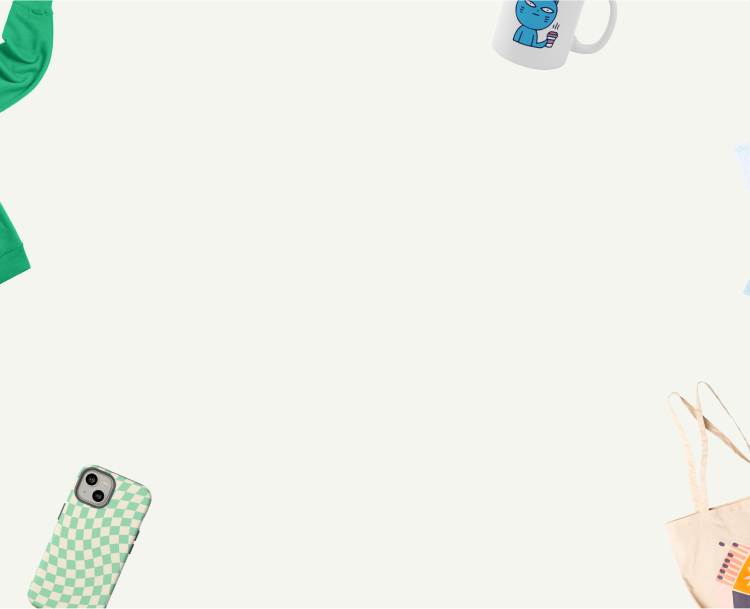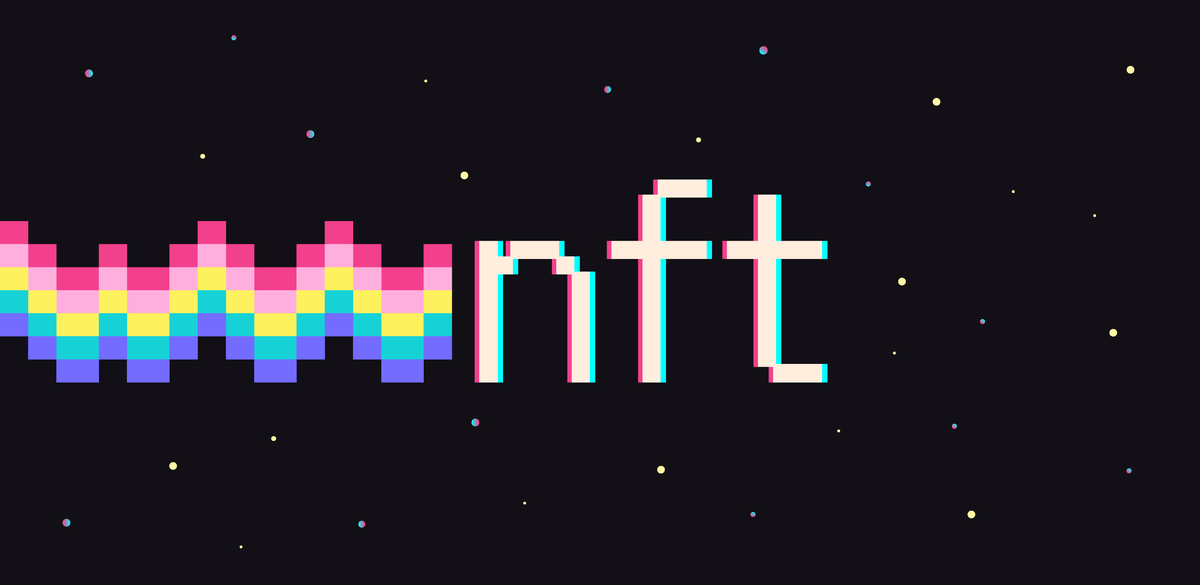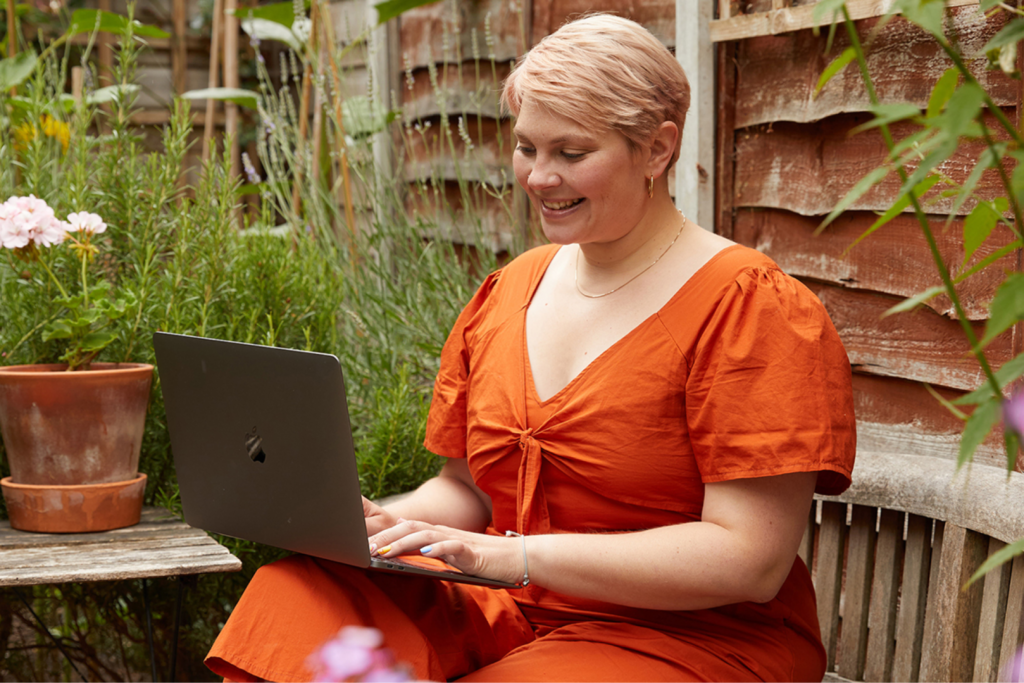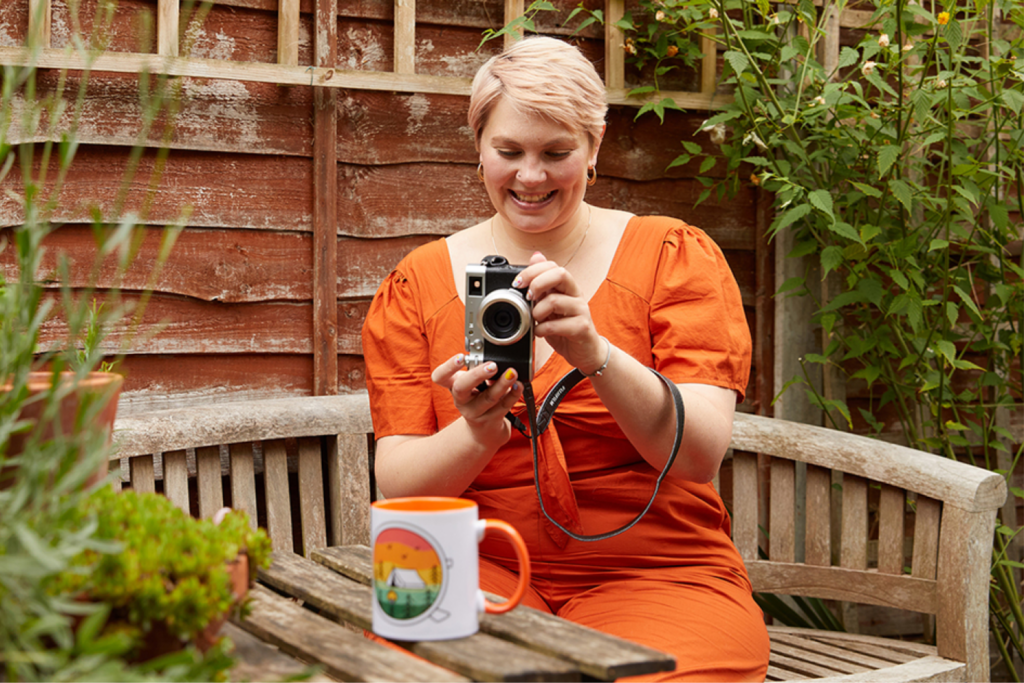Create what’s trending. Sell what’s hot
While crypto art and NFTs are making global headlines, a lot of people are still in the dark when it comes to understanding what they are and how to profit from it.
Think about art. Physical works such as paintings, drawings, sketches, and sculptures usually come to mind. But with technology, this concept has seen many changes in forms and types.
Art can also be digital. Instead of canvases or paper, it exists as pixels on a screen. That doesn’t mean it has less value, quite the opposite. With the emergence of NFTs, any type of digital art can be owned, enjoyed, and sold.
In this article we’ll explain the concepts of crypto art and NFTs. What they are, how to use them, and how to supercharge your digital art profits with POD.
What is crypto art and NFT?
Imagine a world where paintbrushes are replaced by pixels. Crypto art is a digital form of art that is treated like physical goods. It can be collected, sold, bought, and traded on a digital platform.
Crypto art exists as music, graphics, images, photography, videos, and more. It takes the form of JPGs, MP3s, GIFs, virtual trading cards, video game skins, virtual real estate, and even tweets. Like traditional art, crypto art pieces exist in limited quantities.
NFT stands for non-fungible token. In simple terms, these are unique, fraud-proof coins used to prove ownership of a certain digital file. They serve as a digital certificate of authenticity that can be assigned to anything in the crypto art world.
Many people can copy-paste or download digital artwork and use it in different ways and forms. How do we know which is the original in the digital world? It’s simple. The original has an NFT.
How does crypto art work?
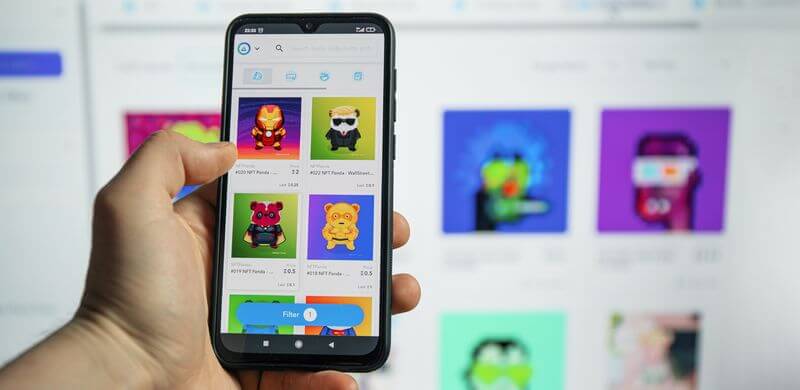
Creating crypto artwork is the same as creating an original painting, song, sculpture, or any other piece of art, only in a digital world and a digital format. Here’s how it works.
- Creation. Anyone can create a digital art piece. Whether it’s a GIF, a picture, painting, song, beat, or anything else living in the online world. This is the moment for digital artists and motion designers. Any type and style of art will be appreciated in the crypto art world.
- Value. It’s all about value. Anyone can right-click and save a picture or download a song to their computer. But that image or piece of music has no value. You can’t sell it to anyone and you don’t hold the rights to the piece. However, an NFT-backed digital asset is the original art from the artist. Thus, it holds a value. Just like a Picasso original.
- Sales. Every piece of crypto art can be collected, sold, bought, or traded. The value is based on scarcity and the fact that crypto art cannot be reproduced, it’s unique and one-of-a-kind. Just like collectors and traders put value on paintings, trading cards, and other goods, online collectors place value on pixels. Either they want to support the artist, earn money, or feel a connection to the piece. One thing is clear: crypto art sells.
Make it happen today!
What is the point of an NFT?
NFTs ensure the ability to prove digital ownership. Before, anyone could just copy, screenshot, or download digital assets online, and sell them as their own. No one knew where the original came from or how to tell the original from a copy. But now, NFTs put the creator’s signature on artwork and other digital assets.
How NFTs work:
- Create a Digital Good. A crypto artist creates an image, video, tweet, website, or anything else that is digital.
- Create a Token. Tokens are created on blockchains that support smart contracts such as Ethereum. This token holds information about the goods being sold, including:
- Token Name
- Token Symbol
- Unique Hash
- Sell to Someone Else. Once a token is created, a crypto artist can sell it. Whoever finds value in the work and buys it, becomes the new owner of this digital good.
Keep in mind that digital goods themselves are not stored inside the token. The NFT only holds attributes related to them. Anyone can see the public information of the token creator, the original artist, past transactions, and the current owner.
Is crypto art safe?
In short, yes. Anyone who wants to sell or buy crypto art can be assured their transactions and artwork will be in safe hands, thanks to a phenomenon called blockchain technology. A blockchain is made of thousands of computers, creating a worldwide network of people monitoring the crypto world. Let’s look at an example.
How do we tell if something is real or fake? The answer is, we keep a record of it.
For example, every dollar bill has a serial number, recorded by the bank. Whenever we need to verify a certain document, bill, or piece of art, we turn to the relevant authority guaranteeing the information: a bank, a notary, state office, etc.
These central authorities can change the facts to their favour or can be hacked. This is where crypto comes in. It promotes de-centralisation and reduces the risk of corruption, fraud, and manipulation, because in crypto everyone can keep track of everything. Nothing is run or kept by an authority. This is called blockchain technology.
Blockchain technology is a new and innovative way to decentralize. It’s a system where records are kept by everyone. With so many monitoring everything, it’s hard to break the rules unnoticed. When selling or buying crypto art, all transactions and digital assets are safe and sound.
Why should you sell crypto art?
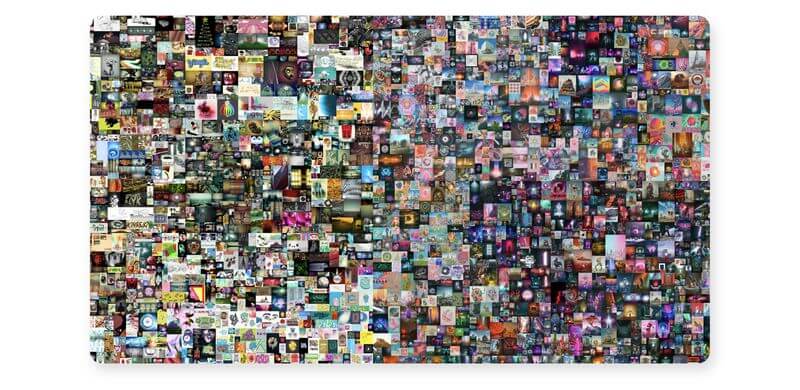
- Freedom. Crypto art is a way for artists to experiment. To create art on their own terms. To tell their stories without catering to bigger markets or platforms and their algorithms. Artists go from being a tool or brush for someone else’s project, to being their own person, making what they love.
- Opportunities. Crypto artist Beeple sold his NFT for $69 million. Creating crypto art provides many opportunities for artists. With verified ownership provided by NFTs, crypto artists can get their work recognized, appreciated, and sold.
- Community. You become a part of a supportive community of artists and crypto enthusiasts. People don’t follow social media algorithms where it’s all about likes, comments, and followers. This is a community where every crypto artist feels safe, appreciated, and supported.
How to make and sell NFT art?
We’ve put together a quick five-step guide on how to turn your artwork into a unique NFT. Follow these steps and turn a digital file into an NFT masterpiece.
1. Create your art
The first step to selling NFT art is to create a GIF, video, illustration, 3D model, or anything digital. The maximum size of the piece should not exceed 100Mb. Use Photoshop or various tools to digitize existing artwork or create something entirely new.
2. Set up a digital wallet
A crypto wallet is a digital wallet. It stores the crypto currency used to buy, sell, and create non-fungible tokens. Each blockchain requires its own service. For beginners, the safest and easiest crypto wallets can be created on CoinBase, MetaMask, and Rainbow.
Once a crypto wallet is set up, it’s time to put some cryptocurrency in it. Most digital marketplaces require Gas Fees. Those are fees for specific transactions, such as listing an NFT for sale. In this case, it’s ether (ETH). For example, on MetaMask, click on the “Buy” button, use a debit card, and buy ETH to add to your crypto wallet.
3. Choose a marketplace

Ethereum provides a selection of decentralized apps. Some of the best starting marketplaces for selling NFTs are Rarible, Foundation, and Nifty Gateway. Those are beginner-friendly platforms to get a handle on the market and attention to the artwork. Even Shopify has launched an NFT Beta Program, providing the opportunity to sell NFTs on Shopify.
Nifty Gateway caters mostly to 3D art and models. Foundation is the best platform for digital paintings. Rarible is a mix of everything from high-quality pieces to internet memes. Explore existing listings and decide what’s best for your crypto art.
4. Upload the art
All major crypto platforms, such as Nifty Gateway, OpenSea, and Rarible, will automatically create an account associated with your crypto wallet. They will also provide guidance in a relatively simple uploading process. The only thing you need to decide is how many copies of the NFT to mint and what percentage the royalties will be when the digital asset is re-sold.
This feature allows digital artists to make themselves known in the art world by producing an original piece, linked directly to the author. An NFT comes with a blockchain certificate of authenticity, allowing artists to receive a royalty from every subsequent sale or trade. Once the artwork is uploaded and copies and royalty fees are set, you are ready for the final step to becoming a crypto artist.
5. Set up an auction
When preparing an auction, it’s important to set a reserve price. The reserve price is the minimum amount of ETH the seller is willing to accept for the NFT. The reserved price will be visible to participants of the auction, and they won’t be able to place a bid below it.
There are three main ways to sell an NFT artwork:
- Fixed Price. This sets a specific price and sells the NFT instantly, like the “Buy it now” button on eBay.
- Unlimited Auction. Buyers can continue to make bids and offers on the piece until you accept one.
- Timed Auction. This type of auction offers the NFT for a limited time. Buyers will see when the auction ends and feel encouraged to participate.
To get the best results, check out competitor listings, platform fees, and come up with a good price for the one-of-a-kind crypto art.
NFT and Print on Demand
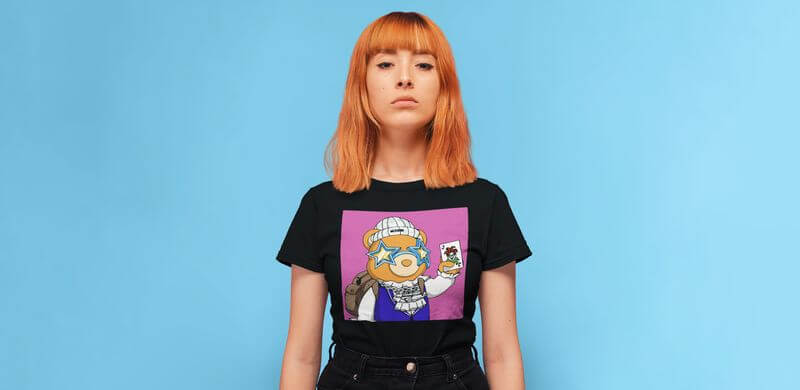
How do POD and NFT go together? It’s simple. Use POD to monetize your NFT crypto art by merchandising. POD allows you to put a digital design, in this case an NFT-backed image on literally anything. From apparel and accessories to home decor and pet products. The POD world is your oyster.
How? Create unique NFT merchandise and use it to boost the popularity of the token itself, the creator, artist, holder, or collection. Partner with Printify and choose your merchandise from 500+ white-label products. Personalize it with the NFT art and start selling.
Why? Exclusivity sells, big time. Offer limited collections to attract attention and promote the art with singularity and authenticity. No more boring stock designs. Offer people something new and unique: NFT merchandise.
Why choose Print on Demand?
100% Free
Sign up for free with no up-front investments, create NFT merchandise, list it online, and pay for order fulfillment only after making a sale.
Global shipping
We partner up with print providers from all over the world, ensuring fast, cheap, and quality fulfillment to local and global customers.
Easy design process
Our user-friendly Product Creator (formerly known as Mockup Generator) allows even beginners to customize and create quality NFT merchandise in only a few simple steps.
Great support
Merchant support agents provide help, guidance, advice, suggestions, and solutions 24/7.
FAQ
To turn your art into an NFT, choose a marketplace like OpenSea, Rarible, or Foundation, connect your crypto wallet (usually MetaMask), and upload your artwork. Add details like title, description, and price, then “mint” it – this creates a digital certificate on the blockchain that proves ownership and authenticity.
NFT art is digital artwork tied to a unique blockchain token called a Non-Fungible Token (NFT). It can take any form – illustrations, photos, videos, or music. Unlike regular image files, NFT art has verifiable ownership, meaning buyers can prove they own the original piece, even if copies exist online.
Crypto art is digital artwork that’s created, sold, and traded using blockchain technology. Each piece is stored as an NFT, making it traceable and impossible to duplicate. Artists use crypto art to sell limited digital editions, while collectors buy it for ownership rights, resale value, and artistic investment potential.
Yes. When you sell an NFT, you receive cryptocurrency – usually Ethereum. You can convert it to your local currency using an exchange like Coinbase, Binance, or Kraken. Keep in mind that transaction fees and exchange rates apply, and you’ll need to link your crypto wallet to transfer funds.
Conclusion
Is it worth trying your hand in creating and selling crypto art?
Crypto art helps artists transform and express themselves. They’re no longer just designers, working for clients. They are artists with a vision, identity, individual personalities and creative voices that people value.
Become a part of the crypto art community and boost your profits and popularity with NFT merchandise. Earn money on your own terms and establish your name in the digital art world.
